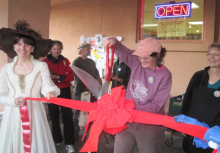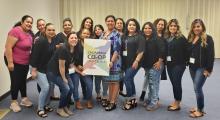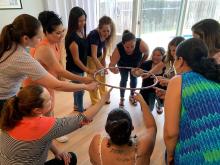CCCD helps people use the cooperative model to cooperatively accomplish what they may not be able to achieve on their own. CCCD provides assistance to groups wanting to create affordable home ownership opportunities by starting a housing cooperative, or to parents who want to form a child care cooperative to gain affordable, high quality care with hours or other options that fit their needs.
Featured Stories
The Co-op Stories pages includes links to videos from previous workshop events, as well as current co-op related stories. If you have a story to share, please contact us, and we can be in touch. Additionally, we are appreciative of the videography contributions of Jai Jai Noire, Mighty Small Films.
The links for the videos below, were recorded at educational workshops from the 2012 CA Co-op Conference.
Link to videos:
- "Humanizing the Economy with Co-ops," by John Restakis. [watch video]. May 16, 2012.
- "Role of Cooperative Incubators in Transitioning Workers to Management Roles," by Deb Goldberg with WAGES. [watch video] Jun 24, 2012.
- "Como crear y controlar los presupuestos de su cooperativa," i.e., "Creating and Monitoring Budgets," by Menche Sansores with WAGES. [watch video] (En Español.) Jun 22, 2012.
- "Developing a Budget for Creating a Food Cooperative," by Stuart Reid. [watch video] Jun 18, 2012.



